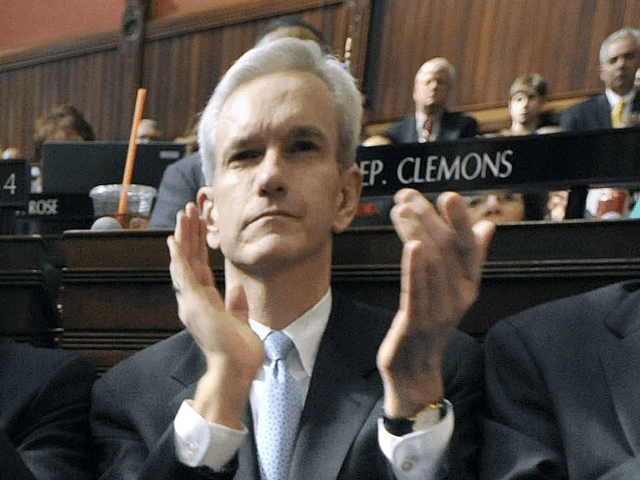Democratic Gov. Dannel Malloy of Connecticut has nominated Associate Supreme Court Justice Andrew McDonald for the post of Chief Justice of the state’s high court, an individual viewed by many as a progressive “judicial activist.”
Mainstream media are headlining the announcement of McDonald’s nomination, focusing on the fact that he would be the “first openly gay” state Supreme Court Chief Justice, but McDonald’s sexual preferences are not the concern for faith and pro-family groups.
“The real issue is his record,” writes Peter Wolfgang, Executive Director of the Family Institute of Connecticut. “McDonald has a record of putting his own politics ahead of the law.”
Wolfgang observes that, in 2009, McDonald – then a state senator from Stamford – introduced SB 1098, a bill that would have denied Connecticut’s Catholic bishops and priests financial authority over their parishes.
Former Gov. Jodi Rell (R) said the “proposal was blatantly unconstitutional, insensitive and inappropriate,” reported the Catholic Transcript, the publication of the Archdiocese of Hartford, as Catholics across the state rallied against the measure.
“Those who proposed this bill have embarrassed themselves and the State of Connecticut,” said then-Archbishop Henry Mansell, pointing out the hypocrisy that a state with a $1 billion deficit would presume to direct the Church in how to operate its finances.
McDonald is also a longtime friend and attorney to Malloy – one of the most unpopular governors in the country.
According to the Associated Press (AP), Malloy acknowledged his friendship with McDonald, and said he “has proven himself to be a consummate, revered jurist who has an exceptional ability to understand, analyze, research, and evaluate legal issues.”
Wolfgang notes the turn of events regarding the death penalty in the state after Malloy had nominated McDonald to the state’s high court in 2013:
As Gov. Malloy’s attorney, McDonald had advised the governor to sign into law a repeal of the death penalty on the cockamamie theory that it would somehow not apply to those already on death row. Once on the bench, McDonald ruled the exact opposite of what he had advised the governor, abolishing the death penalty altogether and letting the men who tortured and murdered Dr. Petit’s family in Cheshire off death row.
Similarly, Wolfgang writes many fear McDonald will once again place his personal political views above the law in a case about gun rights now before the state Supreme Court.
In 2008, the state’s high court ruled in favor of same-sex marriage. McDonald commented on his “marriage” to Charles Gray and the meaning of same-sex marriage rulings to his own personal life following Malloy’s announcement of his nomination as Chief Justice.
“When I was born here in Connecticut a little more than 50 years ago, loving relationships like the one Charles and I cherish were criminal in 49 states including Connecticut,” he said, according to AP.
He added:
When I came out in the early 1990s, I had family members who loved me deeply but still counseled me against pursuing either a career in law or in public service because of the deeply ingrained prejudices held by some people at that time. But now, because of changes brought about by evolving understanding of people, new statutes passed by legislators and important court cases — indeed by the rule of law — this day was made possible.
“[T]he issue is not the death penalty or guns or even same-sex marriage,” writes Wolfgang. “And it is certainly not about Andrew McDonald being gay.”
He continues:
The issue is that Andrew McDonald is a judicial activist who puts his personal views above the law and then imposes those views by judicial fiat. He will be in an even greater position to do that, to legislate from the bench, as Chief Justice. And that is why his nomination for Chief Justice should be rejected.
McDonald must be confirmed by the state legislature.
Republican Rep. Vincent Candelora told Face the State that he would likely vote against McDonald’s nomination, but admitted Republican lawmakers might not make a concerted effort to block his nomination.
“On a personal level it would be difficult for me to confirm him as a chief justice,” Candelora said.
Chris Powell, managing editor of the Journal Inquirer, writes that Connecticut lawmakers should consider this a serious decision:
McDonald’s nomination should be treated by the General Assembly as the ultimate political issue, treated as potentially deciding all details of school financing and integration, public employee union privileges, state and municipal tax levels, freedom of information, and everything else once decided by the legislature through the ordinary democratic process.
McDonald may be a good guy or a bad guy, a skilled jurist or a mere ideologue and polemicist, but his character and expertise matter to his nomination no more than his sexual orientation does. What matters is only how he will keep imposing his politics on the law.
“Look, I get what they’re doing,” adds Wolfgang. “If you vote against the gay guy you’re a bigot. But McDonald’s nomination should be rejected for reasons that have nothing to do with his homosexuality. McDonald has a record of putting his own politics ahead of the law.”

COMMENTS
Please let us know if you're having issues with commenting.